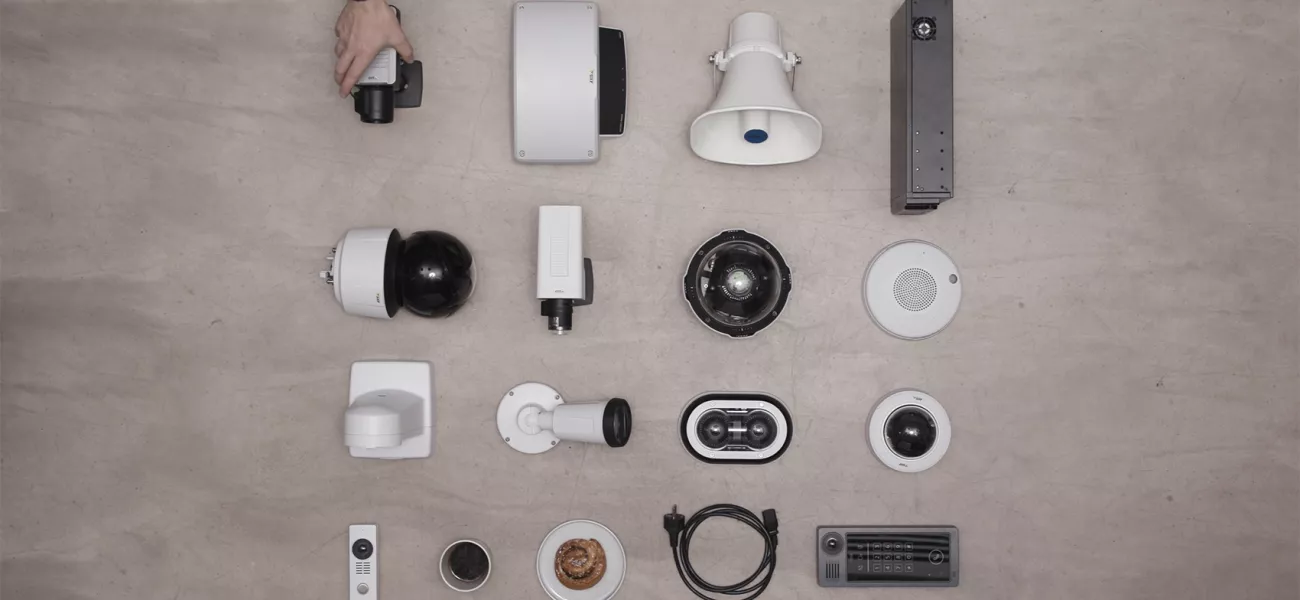
Installing surveillance systems can be a tricky business if you’re dealing with unclear instructions and incompatible components. To avoid these problems, site designers are creating systems comprised entirely of Axis hardware and software, making installation as straightforward as possible.
“The example I always give,” says Mitch Mershon, Business Development Manager for end-to-end solution in the Americas, “is of a designer wanting to mount a camera on a brick wall. It’s a simple task, but if the installer doesn’t know that they’re working with brick, then they might not have the right drill bits. So, they might have to go home to get them, or to a hardware store to buy more. And as we all know, time is money”
This is a small-scale example of course, and the larger the project, the more damaging it can be for installers to arrive on site without the right information or equipment. With Axis end-to-end solutions – complete security systems with all hardware and software from Axis – scenarios like this can be avoided.
All the documentation you need
“One of the most difficult transitions of information is from the design team to the installation team,” Mitch says, “that’s why, when it comes to documentation, Axis takes a ‘more is more’ approach.”
AXIS Site Designer is a tool that lets system integrators create end-to-end solutions. These are surveillance solutions tailored and validated to the needs of the end-user, with all hardware and software coming from Axis. One of the benefits of this approach is that thorough, accurate documentation – specification sheets, site maps, installation documents, and more – are automatically generated and packaged to let installers know exactly what’s required to get everything up and running.
This also applies to software and connectivity. To save time and eliminate errors, AXIS Site Designer generates an auto configuration file that can be exported to AXIS Camera Station via email or USB. Remote connections are also straightforward. Axis Secure Remote Access is easy to install via a setup wizard, and doesn’t require manual port forwarding or router configuration.
It’s an approach that improves communication between the designer and the installer too. System integrators can make notes directly on AXIS Site Designer, which are then passed on to the installation team alongside the rest of the details they need.
Validated hardware and software
Of course, the most important thing for an installer is knowing that the designed system will actually work in real life. All hardware and software from Axis are tested to guarantee their compatibility, so any system that installers put in place will have been validated by Axis quality assurance teams. This means that installers know that the system is viable and that they won’t have the headache of trying to combine hardware and video management software (VMS) from different suppliers.
“One of the strengths of Axis equipment from the end-users’ point of view is that, ‘it just works’,” says Mitch. “With end-to-end solution from Axis and AXIS Site Designer, that philosophy extends to installers as well as end-users.”
A stress test for a complete system
When the installation is completed, installers get assurance that everything is set up correctly with AXIS Installation Verifier.
“It’s a tool that will stress test the entire solution,” explains Mitch, “It basically creates a worst-case-scenario, and floods the cameras and accessories by simulating motion and audio input, and drawing large voltages through PoE (Power over Ethernet) systems. It does that for about 15 minutes, then it generates a report that tells you the reaction of the network, the processor, the hard drive, the RAM, and so on. So, the installer finds out straight away if the system is set up properly or if there are any issues.”
This report is often shared with the end-user, to verify that the system has been tested to the manufacturer’s standards.
“It’s also great because it’s a detailed report of every Axis product on the system,” Mitch says. “It’s a record and a snapshot of every camera, accessory, and piece of software. That can be a crucial document for an installer, because if anyone makes any unauthorized changes to the system at a later date, the installer can demonstrate that everything was correctly configured when they finished the installation.”
Educating customers
The transfer of information from the integrator to installer is vitally important, but it’s also crucial that the end-user gets the information they need to understand their new surveillance system after installation. End-to-end solutions are helpful for this too – the documentation generated by AXIS Site Designer and AXIS Installation Verifier can help educate the customer and reduce the likelihood of them making confused follow-up calls. Often, installers use this documentation to guide the end-user through their new surveillance system, improving customer satisfaction in the process.